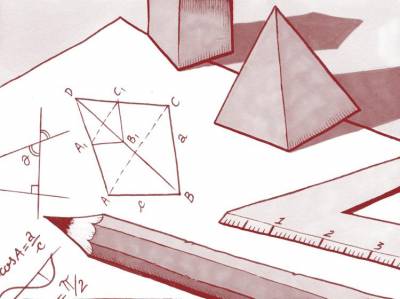Head of Department: Prof Robb McDonald
The Department of Mathematics is one of UCL’s founding academic units, dating back to the earliest days of teaching and research at the college. It has had an illustrious history since then with three Fields Medals (the mathematical equivalent of the Nobel Prizes) among its staff or alumni. Klaus Roth (1958) and Alan Baker (1970) both studied and worked at UCL, while Tim Gowers won the 1998 medal for work he did while at UCL.
The department carries out world-leading research in pure and applied mathematics, with a particularly strong track record in fluid mechanics. Additionally, the department has recently established a leading group in the field of geometry. In recent years, the department has developed in the field of financial mathematics, creating an MSc programme in the subject and expanding its research. These developments have seen academic staff numbers increase by around 50%.
The department participates in applied mathematics in the life and medical sciences through UCL’s Clinical Operational Research Unit, and the Centre for Mathematics and Physics in the Life Sciences and Experimental Biology (CoMPLEX).
Admission to mathematics degrees at UCL is highly competitive. The undergraduate mathematics courses have the highest entry requirements of any degrees at UCL, with a typical offer of A*A*A at A-Level. The department has the largest student body in the faculty.
Unusually for the faculty, which has traditionally been focused on four-year undergraduate programmes and research postgraduate programmes (as is common with science faculties in the UK), the department has a rapidly growing number of taught postgraduate students.
Part of this growth is thanks to the recent creation of an MSc in financial mathematics, tapping into London’s position as a global financial sector and UCL’s reputation as a leading institution for the mathematical sciences.
The department also contributes to a number of interdisciplinary initiatives such as UCL SeCRET (Security Science Doctoral Research Training Centre) and the Centre for Inverse Problems (in which scientists observe effects and try to deduce the cause).

 Close
Close

